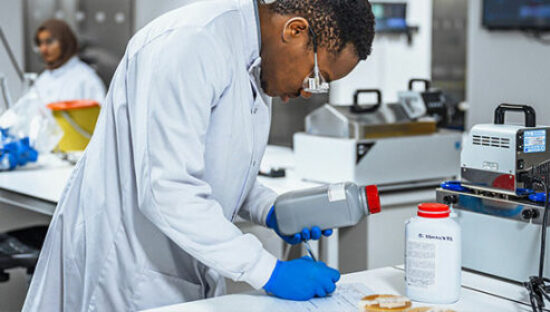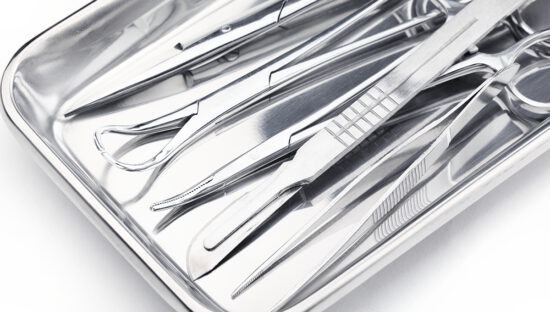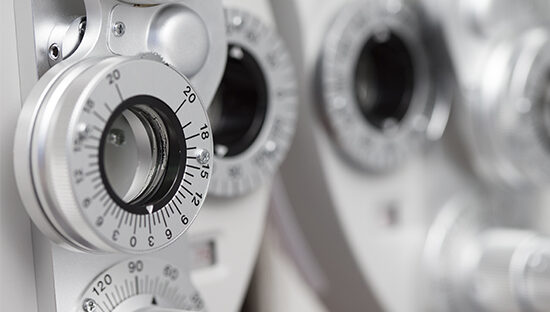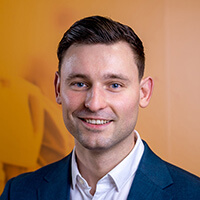
Behind the Scenes of our visit to Pakistan
We have been planning our Pakistan visit for quite a while and were very happy that finally we were able to make it happen. Our trip was organised with a massive help from the local regulatory affairs team support, together with The Sialkot Chamber of Commerce. So, wearing our Test Labs tracksuits, Enrico and I set off from Stansted departure terminals, ready for the journey ahead. Nearly 24 hours later, we have arrived at our destination, where we wasted no time in preparing and rehearsing our seminar presentation. Here, we will tell you everything there is to know about our recent trip to Pakistan.

Why we were there and how is it important?
Indeed, the deadline for the EU Medical Device Regulation (MDR) has ignited a sense of urgency among manufacturers worldwide. For Pakistan, home to over 2,000 surgical instrument companies supplying the EU market, the challenges are unique. Pakistan is one of the leading manufacturers and exporters of surgical instruments globally, with around 80-90% of the Europe’s reusable stainless steel surgical instruments manufactured in Sialkot. The industry employs approximately 150,000 to 200,000 workers and contributes significantly to the country’s economy, with an annual export value of about $400 million to $500 million. The primary export markets for Pakistan surgical instruments are the European Union, the United States, and other developed countries.
Since 2016, manufacturers have been working to transition from the Medical Device Directive (MDD) to the more stringent MDR, posing a particular challenge for devices, like Class Ir instruments, which have been reclassified under the MDR. This shift necessitates engaging with Notified Bodies, revealing significant gaps in technical files.
The expiring CE certificates and transition requirements create a time-sensitive scenario for manufacturers. To remain on the EU market, these manufacturers must swiftly compile comprehensive technical files, subjecting them to rigorous reviews by Notified Bodies and promptly addressing any identified gaps. The clock is ticking, and any delay could result in their products being removed from the market.
Adding to the challenge is the global shortage of Notified Body and laboratory capacity. Pakistan’s medical device businesses find themselves in a precarious situation as the demand for conformity assessments has surged. The risk of delays in testing and certification processes is a genuine threat, potentially sidelining products.
Over the last couple of years, the Test Labs management team has strategically worked to support the surgical instrument industry in keeping their products on the market and successfully transitioning from MDD to MDR. We have increased our scope of accreditation to include standards required for reusable surgical instrument validation, expanded our capacity, and streamlined our processes to offer industry-leading timescales. Additionally, we have built strong relationships with the Pakistan manufacturing community, meeting their representatives at global medical device conferences such as MEDICA and Arab Health. We wanted to ensure we were fully prepared to support the industry.
In collaboration with The Sialkot Chamber of Commerce & Industry, we proposed delivering a focused seminar in Sialkot to provide the industry with relevant information and insights. The feedback we received from manufacturers at various exhibitions was overwhelmingly positive, with many expressing a desire for us to come to Sialkot to speak to them directly. This suggestion was well-received by the Chamber of Commerce. So, on the 14th of May, Enrico Allegra and I delivered our first seminar in Sialkot.
Test Labs UK Seminar – Reusable Surgical Instrument Validation Requirements for Successful MDR Transition
The team at The Sialkot Chamber of Commerce & Industry were exceptionally well-prepared, making us feel very welcome and providing excellent facilities. When Marianne, our Business Development Manager, saw our pictures, she said, “Wow, you guys looked like you were negotiating Brexit! Everything looked so grand!” We can’t commend enough the hospitality of everyone involved. We were a little taken back by the level of security detail provided to us, but we understood that it was for our safety and comfort. The turnout exceeded our expectations, filling the room, which we were very happy about.
Our seminar was specifically aimed at surgical instrument manufacturers, and our agenda included a comprehensive presentation covering various aspects of the surgical instrument validation process.
We provided an overview of current MDR challenges and market insights, including:
• Reusable surgical instrument validation process
• Cleaning validation
• Disinfection validation
• Sterilisation validation
• Service life validation
• Biological evaluation plan
• Biocompatibility testing
• Biological evaluation report
• Clinical evaluation report
• Additionally, we concluded with a Q&A session.
We received a range of good questions, starting with the most pressing one – testing costs. This is always challenging to answer definitively, as it depends on several factors, beginning with the current state of their technical file. We provided some estimates with couple of caveats.
One thing is clear: to remain in the EU market, manufacturers must invest in their technical documentation. The conversation then moved into more technical aspects, discussing the correct classification rules, how to choose worst-case scenarios, how many instruments to test, and what to do if your portfolio comprises of thousands of instruments. It was encouraging to see this level of engagement, given the substantial amount of detailed information we shared in what felt like a short amount of time. Digesting all that information in a couple of hours was quite a task.
We emphasised that if there are only three things to remember from this seminar, they are:
- Do not delay your MDR transition process.
- Invest in your technical documentation; don’t take any chances with Notified Bodies.
- Seek out accredited test houses to do the work to reduce the risk of Notified Body pushback.
Medical Device manufacturers visits
Enrico and I spent four days in Pakistan, three in Sialkot and the final day in Lahore. Our itinerary was well-planned, allowing us to visit two manufacturers in Sialkot and one in Lahore.
The first manufacturer we had the pleasure of meeting was based in Sialkot, with over 800 employees and a rich history in device manufacturing. The company produces laryngoscopes and ships them globally. It was incredible to see that 60-70% of the manufacturing processes are done in-house, including making of tiny springs, laser cutting components, and CNC machining. The company also has large cleanroom facilities for producing sterile, single-use devices. We observed the entire process from component production to full assembly and cleanroom packing. The on-site catering, providing delicious food, was a bonus! Over the years, the company has continued to invest in its manufacturing processes and quality management systems to ensure their products meet high standards. It was also impressive to see their commitment to sustainability and social responsibility, with solar panels on the factory roof and significant contributions to the local community.
The second factory we visited is one of the largest manufacturers of reusable surgical instruments. This specialist manufacturing site focuses on a surgical instrument category with thousands of instruments in their reference library. We had never seen anything like it – the craftsmanship and amount of manual work that goes into making surgical instruments is mind-blowing. We saw the entire process, from forged blanks to the final article, involving many manual steps. Each instrument is worked on by at least 60 different people before it leaves the factory. Unfortunately, some of these high-quality stainless-steel instruments are single use. Given the incredible level of work and craftsmanship put into these instruments, having them as single-use does not seem like a sustainable option, especially when these instruments can be safely reprocessed using globally recognised standardised process.
The quality process and inspection are stringent, with any instrument failing to meet standards sent back for rework. We asked the QC specialist to show us why a pair of grippers had been rejected under the microscope. He demonstrated what good quality item looks like, making it clear even though the rejected one didn’t look bad to the naked eye. Despite a broad age diversity among staff, the most skilled work is done by senior members, presenting a challenge as their retirement could mean the loss of highly developed skills. I will certainly never look at surgical instruments the same way – they are made like jewellery.
Our final visit was in Lahore, at a specialist manufacturer of instrument trays. The commitment to quality and in-house manufacturing was at its highest here. This manufacturer completes 100% of the manufacturing process in-house, buying raw materials, such as steel from Europe, to ensure top quality. From the latest laser cutting machines to punching machines and spot welding, everything is done under one roof. As an engineer myself, I found it amazing to see the transformation from raw material to finished article in just a few weeks. The company even has its own local farm that produces enough food to support the employees. Their dedication to social responsibility is remarkable, pushing the limits and giving back to the community.
Without a doubt, we visited some of the best manufacturing sites in Sialkot and Lahore. We understand that not every business is organised in the same way or has a global presence, but it has certainly changed our perception of how the industry is developing and its future direction.
Experiencing Pakistan: From Plates to Places
We also had some time for sightseeing, kindly organised by our hosts. The food was phenomenal – I’m pretty sure we gained a couple of pounds during our stay! Everyone was incredibly kind and helpful. Once you get used to the somewhat chaotic traffic, which actually starts to make sense after a while, you can truly appreciate the grandeur and scale of the city. Lahore, home to over 23 million people, is nearly double the size of London. And the weather—wow! We experienced peak temperatures of 43 degrees Celsius, making air conditioning a true lifesaver.
Reflecting on our time in Pakistan, we are deeply inspired by the resilience and commitment of the industry professionals we met. Their eagerness to adapt and embrace change bodes well for the future of the industry. We’re excited to return to Pakistan soon to follow up with manufacturers and continue supporting their transition process. We’re confident that, together, we can overcome the challenges posed by the MDR and ensure the continued success and growth of the surgical instrument industry in Pakistan.
Enrico and I want to express our heartfelt appreciation for the delicious food and warm hospitality we experienced throughout our visit. We felt truly welcomed and well taken care of, which added to the overall positive experience of our trip. We look forward to our next visit and the opportunity to further strengthen our partnerships and collaborations in Pakistan.





